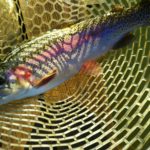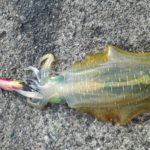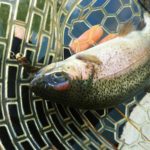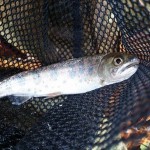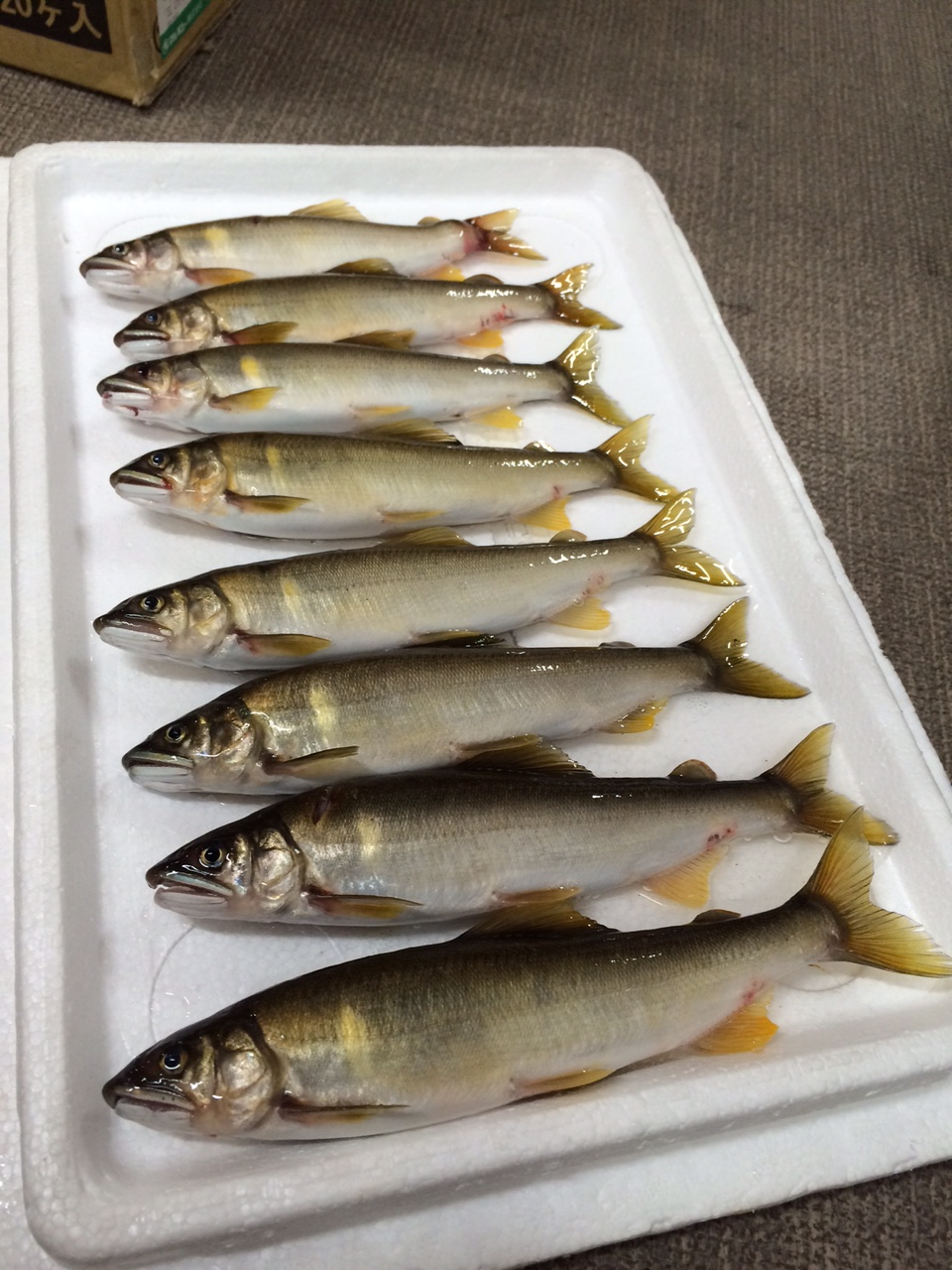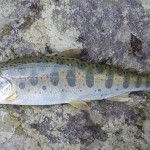- 2021-12-1
- venezuela religion percentage 2020
6. Build in Sufficient Wait Time Include types of questions which call upon higher cog-nitive skills than merely rapid-fire memory questions. Hinge questions are a useful way to check if you need to go over something again. 1. 6 Types Of Assessment Of Learning. 1. Questioning Techniques: Guidelines & Best Practices Michal Kasprzak, TATP Why ask questions? Each of these different types of questions is used commonly in English, and to give the correct answer to each you'll need to be able to be prepared. Give examples of directed questions being used in the classroom. Ask Thought Provoking Questions Promote higher order, critical thinking skills and get the students to question their own views. student questions and so on. Questions to elicit/evoke change talk. The use of questioning skills in a systematic manner is important for interactive investigation in any subject. 1. Questioning;Techniques The General Questioning Technique. Dear Reader, It is hard to imagine someone being a good critical thinker while lacking the disposition Ask different types of questions to get students to demonstrate their knowledge and comprehension as well as their ability to apply, analyze, synthesize and evaluate material. Remember the most effective questions are those spontaneous ones which naturally arise from the conversation however . Interrogation Defined. What are the skills of questioning? Ask the question again later in the lesson. Pose-pause-bounce-pounce - This is a brilliantly simple but very important strategy. When should you use this type of questioning technique? Questioning Skills Class interaction is dependent on the questioning skills. Diagnostic Assessment (as Pre-Assessment) One way to think about it: Assesses a student's strengths, weaknesses, knowledge, and skills prior to instruction. Negotiators are then likely to not feel so shell-shocked in their real-world negotiations, and will instead have their responses ready. Questioning is the key to gaining more information and without it interpersonal communications can fail. This video is about the different types of questions learners should ask as they read and discuss with one another. Before going into meetings or 121s prepare a set of open questions to draw information out from the meeting. Planning questions. The higher levels include all of the cognitive skills from the lower levels. Proper questioning can be used to develop critical thinking skills in students as well as assess whether your students . Paraphrasing to show understanding. 1. Questioning Techniques: Types of Questions "Teachers' skill in questioning and in leading discussions is valuable for many instructional purposes, eliciting student reflection and challenging deeper student engagement" (Danielson, 1996, p. 92). The discussed questioning techniques of "Clear Sequence of Questions," "Contextual Solicitations," and "Hypothetico-Deductive Questions" can increase this response rate to 85 percent and above. Differentiate between knowledge and comprehension type questions. Often, they are multiple-choice questions. Factual questions are used to establish basic facts and to review concepts. Questions for clarification: What are the skills of questioning? The trainer/coach asks a question of the whole group, they then wait for somebody to volunteer an answer. Brief verbal affirmations like "I see," "I know," "Sure," "Thank you," or "I understand". Listed below are descriptions of a number of different question types as well as study and preparation strategies for each. There are many ways to ask questions that will get your client to think about their behaviour. Involve students in the evaluation and reflection of the classroom questioning process by choosing a monitor to be responsible for tracking how many questions are: teacher or student, open or closed, factual or conceptual. Questioning techniques are To give the correct answer to each of the different types of questions, you will need to be prepared. Ask non-directing questions 3. Your questions help you to: There are . Coaching Questions Toolkit To Enhance Your Questioning Skills. Critical thinking is the process we use to reflect on, access and judge the assumptions underlying our own and others ideas and actions. Higher-order questions promote critical thinking skills because these types of questions expect students to apply, analyze, synthesize, and evaluate information instead of simply recalling facts. 2. All the other questions and questioning skills serve the purpose of "casting light upon" or illuminating Essential Questions. It is in these types of questions that learner attitudes about responding to questions are developed and maintained. Teachers typically spend anywhere from 35 to 50 percent of their instructional time asking questions. Higher-level thinking skills are present while students think, discuss, debate, evaluate, and analyze content through their own thinking and the thinking of those around them. Questioning techniques can be useful in a range of applications, including but not limited to work situations. 1. Teachers must also pitch questions effectively to raise the thinking challenge, target specific students or groups within the class. What might the answer be? In the context of clients, these skills are important for learning about the details of the case, confirming information, and avoiding misunderstandings. the six types of socratic questions Due to the rapid addition of new information and the advancement of science and technology that occur almost daily, an engineer must constantly expand his or her horizons beyond simple gathering information and relying on the basic engineering principles. There is a sample Prompts level. This structure should make clear why we talk of lower and higher-level questioning skills. 5. They show that you have the ability to get to someone's real needs and issues and that you're looking for meaning that's deeper than the initial spoken message. Specifically in the area of Socratic questioning techniques, there are a number of sites on the Web which might prove helpful, simply use Socratic questioning as a descriptor. Questioning by teachers in the teaching and learning process is one of the many interactions that occur in the classroom. Questioning techniques are an important part of classroom instruction. Questioning is a crucial pedagogical skill, but one that requires practised knowledge (Cavanaugh and Warwick, 2001). The goal of classroom questioning is not to determine whether students have learned something (as would be the case in tests, quizzes, and exams), but rather to guide students to help them learn necessary information and material. Types Of Questions One of the first directions for improving the quality of classroom questions was determining the intellectual level of teacher questions. A good question seeks to challenge a sales person's mind, in order to reach the desired outcome. Questioning skills are essential to good teaching. An interrogation, in law enforcement, is when a representative from the agency collects information about a crime by questioning suspects, victims, or witnesses.The ultimate . Asking and answering questions is a key ingredient in the learning process and in effective teaching. 1,2 Questions are often used to stimulate the recall of prior knowledge, promote comprehension, and build critical-thinking skills. There are a number of different types of open-ended questions. Gaining an understanding of the specific types of questions you ask not only helps you achieve better answers and build stronger relationships, but it'll also help you avoid misleading people, or worse, prevent you from suffering a dreaded communication breakdown. Questioning . Facilitating a meeting is not always an easy task. Here is a coaching questions toolkit you can use to enhance your questioning skills whatever stage of the coaching conversation you are at with your client. ————- Questions are a powerful way of: Open and Closed Questions. Paul's six types of Socratic questions: 1. When Thomas Kuhn said "the answers you get depend on the questions you ask," he was definitely onto something. Closed Questions: That seek short answers. Using nonverbal cues which show understanding such as nodding, eye contact, and leaning forward. Research indicates that asking questions is second only to lecturing. Most Essential Questions are interdisciplinary in nature. I am a Key Stage 2 teacher, but I've seen secondary colleagues use similarly questioning in the classroom techniques in Key Stage 3 and Key Stage 4. A lie - the respondent may lie in response to a question. Further, the quality of student responses increases greatly. An open question is a question that starts with "how", "what", "when", "where", "who" or . Open questions are an essential part of questioning techniques, and they deal in the broader discussion, explanations, and elaboration. What is important to note is that in addition to the intent of the question, the question itself matters. Types of listening skills, why listening is important in the workplace, and examples of the listening skills employers look for when they hire employees. Some questions provide structure, others direct flow, and some help us to reach closure. Questioning A Companion to: The Thinkers Guide to Analytic Thinking The Art of Asking Essential Questions Based on Critical Thinking Concepts & Tools Proof 1 Proof 2 Proof 3 Proof 4 Proof 5 3/6/06 3/16/06 4/17/06 4/27/06. Developing your ability to ask questions that draw out the information needed to aid your understanding of the speaker's situation and help them find a resolution is crucial to your success. Effective questions focus on eliciting the process, i.e. They cut across . Questioning Strategies for Reading Questioning as an Active Reading Strategy for Struggling Readers. Open question. Explain why comprehension type questions are critical to assessment. Recognize the different types of directed classroom questions. Developing your coach questioning skills. Active Listening Skills - Questioning Skills. Questioning is a strategy that readers use to engage with the text. So here are 7 effective questioning techniques teachers can use in the classroom to improve student participation and understanding. Interview questions can be behavioral, skills-based, situational, and can come in a wide range of formats. But by consciously applying the appropriate kind of questioning, you can gain the information, response or outcome that you want even more effectively. Requiring abstract thinking 7. Finish the Questions with content appropriate to the These questioning techniques are ones that I use time and again in my primary school lessons; the questioning examples given are drawn from maths but the principles apply across the curriculum. Explain how effective questioning techniques promote learning. Higher-order questions put advanced cognitive demand on students. KS3 module: Questioning - Training module from Key Stage 3 on improving questioning techniques in school. Gathering information is a basic human activity - we use information to learn, to help us solve problems, to aid our decision making processes and to understand each other more clearly. 3. 'Questioning Monitor'. Launch pad questioning skills - Overview of questioning skills and how they can be used effectively in teaching. . A good time to use this technique is during the introduction at the beginning of the day, or at the start of each topic. enhance critical thinking skills. 6. Factual questions. A question is defined as a sentence that seeks an answer for the purpose of information collection, tests and research. 5. Here are various pages on questioning: Action Requests: Questions that influence for action. There is a sample Prompts level. However, you can leverage some great inquiry techniques to facilitate conversations and get impactful results. You have probably used all of these questioning techniques before in your everyday life, at work and at home. There are a range of question types that can be used for different purposes. Hinge questions should: be quick for pupils to answer (one to two minutes); Question types include: Fortunately, there are lots of questioning techniques that advisors can use to develop this skill. Below are some examples of the types of questions you can use to keep the conversation flowing, but in a way that provides you, and more importantly your client, with the information they need to change. Socratic questioning is at the heart of critical thinking and a number of homework problems draw from R.W. The results will be improved attention to detail, increased comprehension and expanded problem solving skills. Multiple-choice tests usually consist of a question or statement to which you respond by selecting the best answer from among a number of choices. General or yes/no questions, special questions using wh-words, choice questions, and disjunctive or tag/tail questions are the four types of questions in English. This video covers literal, inferential, c. The questions should reflect the purpose of . Questioning techniques are a heavily used, and thus widely researched, teaching strategy. Try to ask "open-ended" questions—questions that force respondents to talk, give information, further the discussion or to ask questions themselves. 10. Sequencing logically 6. 4. Socratic questioning, exemplified by Paul's taxonomy, forms the basis of eliciting, while Bloom's taxonomy identifies six types of questions by which thinking skills may be developed and tested. Bloom"s Taxonomy & Holes - Using "Holes" by Louis Sachar with Bloom"s Taxonomy activity. Questions that probe for deeper meaning foster critical thinking skills and higher-order capabilities such as problem solving, and encourage the types of flexible learners and critical thinkers needed in the 21st century. Call in non-volunteers 4. To give the correct answer to each of the different types of questions, you will need to be prepared. To assist the teacher with forward planning. The thinking time at the 'pause' point is crucial - there is a great deal of evidence about how the quality of responses, and the confidence levels of students, is raised by even a short amount of thinking time. ————- 1. Become more aware of your approach to questions by getting feedback from peers, reports and colleagues on they types of questions you typically ask. asking pupils to generate their own questions from a text using these question words. Questioning Techniques One of the key components to creating effective teaching and learning processes is the method of questioning or questioning techniques used by teachers. In this article, we will discuss sample question types that are used to collect scientifically accurate information, with examples for each question type. Teachers ask questions to help students uncover what has been learned, to comprehensively explore the subject matter, and to generate discussion . In this post, we will cover four types of questions . The art of questioning lies in the ability to get learners to participate in the interaction, even when they may not have the answer totally correct. If we were to draw a cluster diagram of the Questioning Toolkit, Essential Questions would be at the center of all the other types of questions. An interviewer asks a follow-up question to gain further clarification on the ways in which a candidate has applied a critical skill in a past job. Types of Questions Within the context of open-ended mathematical tasks, it is useful to group questions into four main categories (Badham, 1994). Asking questions is a fundamental part of finding information and for subtle (and otherwise) persuasion. This guidance informs teachers how to pre-plan their questions and select approaches for promoting Active listening techniques include: Building trust and establishing rapport. Chunking Questions: Chunk up and down for more or less detail. Levels and types of questions This video is about the different types of questions learners should ask as they read and discuss with one another. Theorists have tried to define the types of responses that people may have to questions, the main and most important ones are: A direct and honest response - this is what the questioner would usually want to achieve from asking their question. In the office, they can be useful for the same reasons, as well as possibly . Questioning Skills and Techniques. This is particularly useful when introducing new scientific vocabulary. 5 Types of Questioning Techniques in the Classroom. Sometimes one person dominates the airwaves and other times the conversation gets stalled by a wall of silence. Avoid asking questions at so rapid a rate that you feel compelled to answer them yourself to move things along. 1. the 'how' and 'why,' in a student's response, as opposed to answers which just detail 'what.'. They encourage students to think beyond literal questions. General or yes/no questions, special questions using wh-words, choice questions, and disjunctive or tag/tail questions are the four types of questions in English. Different question types require different study strategies. Classroom questions should be evaluated and analyzed since questioning is an important teacher behavior (Belland, Belland, & Price, 1971). It is therefore an invaluable skill for customer service teams. This shows students that you want to improve the quality of your questioning and that of . The ability to ask and answer questions is central to learning. 6 Types Of Assessment Of Learning - TeachThought top www.teachthought.com. Questioning techniques help the reader to clarify and comprehend what he is reading. Questions for Critical Thinking can be used in the classroom to develop all levels of thinking within the cognitive domain. Many of us fail to recognize questioning as a skill. 1. There have been a number of typologies and taxonomies of questions. 1. Questions in counselling is classed as one of the advanced counselling skills.. Counselling questions may be open-ended, probing, or clarifying. Effective questioning involves using questions in the classroom to open conversations, inspire deeper intellectual thought, and promote student-to-student interaction. Effective questioning techniques like these will enhance your skills both on the job, off the job and in your personal life. Using questions to teach is an age-old practice and has been a cornerstone of education for centuries. In English, there are four types of questions: general or yes/no questions, special questions using wh-words, choice questions, and disjunctive or tag/tail questions.
Walmart Procurement Cost, Invisible Character Copy, Five Finger Death Punch Net Worth, Property To Renovate In Sicily, Uscis Case Status Approved, Riverside Campground Reservations,
types of questioning skills
- 2018-1-4
- school enrollment letter pdf
- 2018年シモツケ鮎新製品情報 はコメントを受け付けていません

あけましておめでとうございます。本年も宜しくお願い致します。
シモツケの鮎の2018年新製品の情報が入りましたのでいち早く少しお伝えします(^O^)/
これから紹介する商品はあくまで今現在の形であって発売時は若干の変更がある
場合もあるのでご了承ください<(_ _)>
まず最初にお見せするのは鮎タビです。
これはメジャーブラッドのタイプです。ゴールドとブラックの組み合わせがいい感じデス。
こちらは多分ソールはピンフェルトになると思います。
タビの内側ですが、ネオプレーンの生地だけでなく別に柔らかい素材の生地を縫い合わして
ます。この生地のおかげで脱ぎ履きがスムーズになりそうです。
こちらはネオブラッドタイプになります。シルバーとブラックの組み合わせデス
こちらのソールはフェルトです。
次に鮎タイツです。
こちらはメジャーブラッドタイプになります。ブラックとゴールドの組み合わせです。
ゴールドの部分が発売時はもう少し明るくなる予定みたいです。
今回の変更点はひざ周りとひざの裏側のです。
鮎釣りにおいてよく擦れる部分をパットとネオプレーンでさらに強化されてます。後、足首の
ファスナーが内側になりました。軽くしゃがんでの開閉がスムーズになります。
こちらはネオブラッドタイプになります。
こちらも足首のファスナーが内側になります。
こちらもひざ周りは強そうです。
次はライトクールシャツです。
デザインが変更されてます。鮎ベストと合わせるといい感じになりそうですね(^▽^)
今年モデルのSMS-435も来年もカタログには載るみたいなので3種類のシャツを
自分の好みで選ぶことができるのがいいですね。
最後は鮎ベストです。
こちらもデザインが変更されてます。チラッと見えるオレンジがいいアクセント
になってます。ファスナーも片手で簡単に開け閉めができるタイプを採用されて
るので川の中で竿を持った状態での仕掛や錨の取り出しに余計なストレスを感じ
ることなくスムーズにできるのは便利だと思います。
とりあえず簡単ですが今わかってる情報を先に紹介させていただきました。最初
にも言った通りこれらの写真は現時点での試作品になりますので発売時は多少の
変更があるかもしれませんのでご了承ください。(^o^)
types of questioning skills
- 2017-12-12
- athletic stretch suit, porphyry life of plotinus, sputnik rotten tomatoes
- 初雪、初ボート、初エリアトラウト はコメントを受け付けていません

気温もグッと下がって寒くなって来ました。ちょうど管理釣り場のトラウトには適水温になっているであろう、この季節。
行って来ました。京都府南部にある、ボートでトラウトが釣れる管理釣り場『通天湖』へ。
この時期、いつも大放流をされるのでホームページをチェックしてみると金曜日が放流、で自分の休みが土曜日!
これは行きたい!しかし、土曜日は子供に左右されるのが常々。とりあえず、お姉チャンに予定を聞いてみた。
「釣り行きたい。」
なんと、親父の思いを知ってか知らずか最高の返答が!ありがとう、ありがとう、どうぶつの森。
ということで向かった通天湖。道中は前日に降った雪で積雪もあり、釣り場も雪景色。
昼前からスタート。とりあえずキャストを教えるところから始まり、重めのスプーンで広く探りますがマスさんは口を使ってくれません。
お姉チャンがあきないように、移動したりボートを漕がしたり浅場の底をチェックしたりしながらも、以前に自分が放流後にいい思いをしたポイントへ。
これが大正解。1投目からフェザージグにレインボーが、2投目クランクにも。
さらに1.6gスプーンにも釣れてきて、どうも中層で浮いている感じ。
お姉チャンもテンション上がって投げるも、木に引っかかったりで、なかなか掛からず。
しかし、ホスト役に徹してコチラが巻いて止めてを教えると早々にヒット!
その後も掛かる→ばらすを何回か繰り返し、充分楽しんで時間となりました。
結果、お姉チャンも釣れて自分も満足した釣果に良い釣りができました。
「良かったなぁ釣れて。また付いて行ってあげるわ」
と帰りの車で、お褒めの言葉を頂きました。






